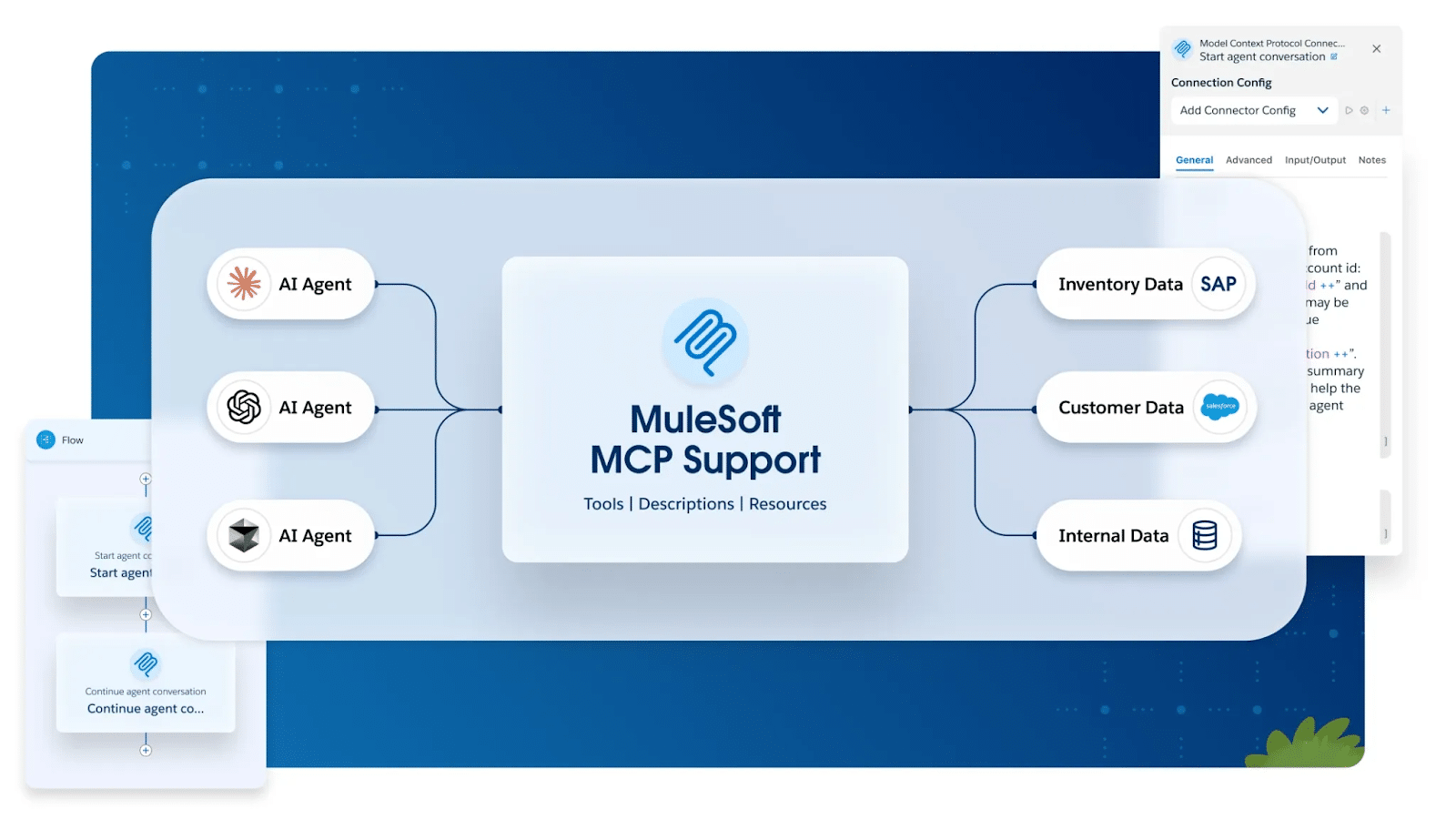Here’s your translation:
—
Support for MCP and A2A marks the beginning of the multi-agent orchestration era, with generative tools accelerating development and promoting interoperability in complex environments.
Salesforce has announced a significant advancement in its MuleSoft platform with the launch of new capabilities designed to facilitate the large-scale adoption of artificial intelligence (AI) agents. With support for emerging protocols like Model Context Protocol (MCP) and Agent-to-Agent (A2A), as well as new generative AI tools integrated into the Anypoint Code Builder development environment, the company is taking a decisive step to transform MuleSoft into a key platform for agentic transformation in business environments.
From APIs to Intelligent Agent Ecosystems
The new features allow for the transformation of any API or application into a resource interpretable by AI agents in just a few clicks. Through the MuleSoft MCP connector, it is possible to expose interfaces as servers compatible with LLM agents, facilitating the orchestration of multi-agent flows and integration with platforms like Salesforce Agentforce 3, which was also recently launched.
Meanwhile, A2A support enables direct and governed communication between agents, allowing for complex collaboration scenarios among heterogeneous models and agents with specialized functions. This distributed architecture is essential to support larger-scale automated operations, such as IT incident resolution, autonomous remediation, or real-time decision-making.
“We are seeing agents becoming key components of the new enterprise architecture,” explained Andrew Comstock, SVP and GM of MuleSoft. “The key is to integrate governance, interoperability, and automation without compromising security.”
Generative Tools to Accelerate Development
One of the challenges of adopting agentic architectures is the complexity of their implementation. To address this, Salesforce has strengthened Anypoint Code Builder with generative AI tools under the Einstein umbrella:
- API specification generation from natural language.
- Automated DataWeave transformations for developers without prior experience.
- API documentation generated upon publishing in Anypoint Exchange.
- Compatibility with IDEs that support MCP, such as Cursor or Windsurf.
These capabilities drastically reduce development time and help companies scale their integrations more rapidly.
Governance and Scalability as Priorities
In a context where language models, AI systems, and traditional applications must coexist, governance and visibility are essential. MuleSoft Flex Gateway reinforces this aspect, acting as a secure control point for both MCP and A2A communications, ensuring traceability and regulatory compliance.
Additionally, MuleSoft maintains its composable approach, allowing organizations to implement modular, interconnected, and easily scalable solutions.
Availability
- MuleSoft MCP Connector and A2A Connector will be available in July 2025.
- Flex Gateway with MCP and A2A support, AI IDE, and generative documentation are already available.
- Einstein for Anypoint Code Builder (API Spec and DataWeave) will be activated on June 26, 2025.
Towards a Composable Agentic Infrastructure
Salesforce and MuleSoft’s vision aligns with the emerging trend of building a technology infrastructure ready for autonomous agents, capable of integrating generative models, APIs, data, and processes in real time. The goal is not only to improve efficiency but also to enable new forms of human-machine interaction based on proactive coordination, resilience, and distributed intelligence.
With this announcement, Salesforce positions itself as a leading tech player in building platforms for the intelligent orchestration of agents, a fundamental pillar in the next phase of enterprise adoption of artificial intelligence.

